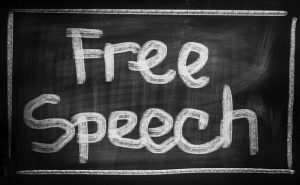Every year Americans come together on the Fourth of July to celebrate the birthday of our country – the day when our Founding Fathers signed the Declaration of Independence. This commemoration rightfully remembers the stirring words that formed the rallying cry of American freedom:
“We hold these truths to be self-evident, that all men are created equal, that they are endowed by their Creator with certain unalienable Rights, that among these are Life, Liberty and the pursuit of Happiness.”
These ideals of the Declaration, inspiring as they are, cannot be realized without a government structure that emphasizes the rule of law. Understanding the greatness of America requires an appreciation not just of the origin of our ideals, but of the form of government that makes these ideals a reality. In this light, the date of Sept. 17 – Constitution Day – is just as important as July 4.
Constitution Day commemorates the day in 1787 that the delegates to the Constitutional Convention in Philadelphia signed the Constitution. In a world where at the time monarchy represented the established order of the day, the countercultural vision behind the Constitution – that we are a nation of laws, not men – was nothing short of revolutionary.
The rule of law promotes and guarantees our individual freedom. That concept may seem counterintuitive because the law is often seen as a restriction of our freedom to do as we please. But the rule of law fosters freedom because it protects the rights that freedom says is our due. Without these safeguards, the prospect of liberty dies on the deathbed of disorder.
The application of this founding principle means that those who serve in positions of public trust always remain answerable to something higher than themselves. As a judge, I do not get to make up my own rules in deciding the cases that come before me. I must follow the law. The oath I swore upon becoming State Court Judge of Fayette County makes this duty explicit. It reads:
“I swear that I will administer justice without respect to person and do equal rights to the poor and the rich and that I will faithfully and impartially discharge and perform all the duties incumbent upon me as State Court Judge of Fayette County, according to the best of my ability and understanding and agreeably to the laws and Constitution of this state and the Constitution of the United States. So help me God.”
Oaths such as these are important because they proclaim before all citizens that the rule of law supersedes the arbitrary rule of any human leader. The Framers of the Constitution believed so much in the power of oaths that they required all federal and state officeholders – legislative, executive, and judicial – to pledge their fidelity to follow that which the Constitution commands.
The legitimacy of government power comes from this obligation of public officials to only use that power in ways sanctioned by the Constitution. When public officials ignore their oath and go beyond the bounds of their prescribed authority, they threaten the very liberty that they are sworn to protect.
If the Constitution can mean whatever a particular government actor wants it to mean, then the oath to uphold it becomes meaningless. The rule of law is replaced by the whim of man.
As citizens, it is our obligation to ensure that those who act in the name of the Constitution do not erode its protections. Part of this duty includes instilling in our children a working knowledge of how the Constitution promotes the cause of freedom.
Constitution Day offers a reminder for each of us to fulfill that responsibility. The security provided by law is only as strong as our shared understanding of the limits that law places on government action. Faithfulness to the plain language of the Constitution produces this type of consensus because it sets a fixed standard readily accessible to all.
Key to the concept that we are a nation of laws is the notion of equality – the belief that “all men are created equal.” No one is above the law, and no one is so low that they cannot avail themselves of the law’s protection.
This promise of equality contained in the Constitution has special meaning for me. My grandparents emigrated from China to the United States in the 1910s and ended up in Augusta, Ga., where they opened a small grocery store near the Medical College of Georgia.
They did not know English, the culture, or anything about the legal system. Yet they instilled in their children a love of this country and the understanding that our freedom and form of government are things to be cherished. I am proud that my father and uncle served honorably in the military to protect that freedom.
I doubt that my grandparents ever dreamed they would have a granddaughter who would be a lawyer, much less a judge. But that possibility underscores the unique greatness of America. By protecting the rights that the Declaration of Independence declares to be God-given, the Constitution provides each of us the freedom and opportunity to pursue our own destiny.
[Judge Carla McMillian is the judge for the State Court of Fayette County.]











Leave a Comment
You must be logged in to post a comment.